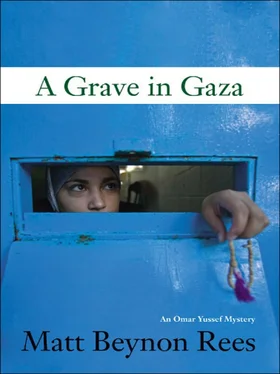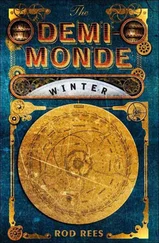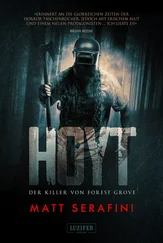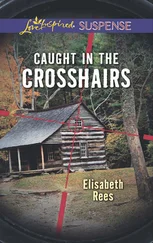Matt Rees - A grave in Gaza
Здесь есть возможность читать онлайн «Matt Rees - A grave in Gaza» весь текст электронной книги совершенно бесплатно (целиком полную версию без сокращений). В некоторых случаях можно слушать аудио, скачать через торрент в формате fb2 и присутствует краткое содержание. Жанр: Криминальный детектив, на английском языке. Описание произведения, (предисловие) а так же отзывы посетителей доступны на портале библиотеки ЛибКат.
- Название:A grave in Gaza
- Автор:
- Жанр:
- Год:неизвестен
- ISBN:нет данных
- Рейтинг книги:5 / 5. Голосов: 1
-
Избранное:Добавить в избранное
- Отзывы:
-
Ваша оценка:
- 100
- 1
- 2
- 3
- 4
- 5
A grave in Gaza: краткое содержание, описание и аннотация
Предлагаем к чтению аннотацию, описание, краткое содержание или предисловие (зависит от того, что написал сам автор книги «A grave in Gaza»). Если вы не нашли необходимую информацию о книге — напишите в комментариях, мы постараемся отыскать её.
A grave in Gaza — читать онлайн бесплатно полную книгу (весь текст) целиком
Ниже представлен текст книги, разбитый по страницам. Система сохранения места последней прочитанной страницы, позволяет с удобством читать онлайн бесплатно книгу «A grave in Gaza», без необходимости каждый раз заново искать на чём Вы остановились. Поставьте закладку, и сможете в любой момент перейти на страницу, на которой закончили чтение.
Интервал:
Закладка:
“Do you hear what they’re saying, ustaz? Listen, they’re saying uzcouru Allah. You hear it?”
Remember Allah. Those words of the dove were a traditional childish conceit. Omar Yussef listened to the repetitive call of the white birds and watched the tender expression on Naji’s face.
The boy straightened. He hooked his fingers through the chickenwire. One of the canaries perched on his thumb. “Will my father be okay, ustaz?”
Omar Yussef sniffed and cleared his throat. “Of course.”
“Did he do something wrong?”
“The exact opposite. Your father stood up for what is right. In a place full of wrongs, that’s a dangerous thing to do.”
Salwa called up the stairs for Naji. Gently, he let the canary fly from his thumb. He watched it land by the seed tray. “I think there’s food downstairs,” he said.
The table was in a small dining room at the front of the house. As Omar Yussef entered, Salwa set down a final plate of eggplant salad. “ Babaganoush is Eyad’s favorite,” she said. “Please, Abu Ramiz, sit here.”
Omar Yussef sat at the head of the table. Salwa introduced him to the other four boys. The older ones watched him inquisitively. The two youngest looked about six and seven, and they ripped their bread into strips without seeming to notice the visitor.
The table was spread with hummus and other salads- spicy, red Turkiyyeh and creamy, white labaneh. The boys seemed to favor the pickled radish: each had a plate of these, sliced, with a few olives at the side. Omar Yussef broke open a kubbeh. From within its cracked-wheat crust, the ground lamb gave off a sweet scent of cinnamon and pine nuts. He smiled at Salwa. “Umm Naji, I very rarely eat any food except what my dear wife Maryam prepares-she’s so good in the kitchen. For this reason, I don’t like to travel. But your skill as a cook has made my absence from Bethlehem less of a hardship today.”
Salwa smiled. “Welcome. Your double health,” she said. “Your family is from Bethlehem, Abu Ramiz?”
“No, we’re refugees from a village on the edge of Jerusalem. My dear father arrived at Dehaisha Camp in 1948, when I was a baby. But I belong to Bethlehem. I’m not aching to go back to the village.”
“Is the village still there?”
“The village fields are covered by an Israeli shopping mall now, like one of those shiny places you see on the Gulf television channels. I’ve seen nothing like it in any of our towns, although I’m told they’re building something similar in Ramallah.”
“Did you ever visit the place?”
“I went back to the village once, in the days when it was easy to get a permit. To tell you the truth, not much remained, except the mosque, which is in disuse. I was just a baby when we left, so my memories are only the stories my dear father told me about the old life. By now, those stories seem real enough to be my own memories, though.” Omar Yussef looked at the kids and thought of their father. “Children, everything that seems bad passes. Life is very long. When you’re young, it’s easy to feel that some bad event is bigger than it is. But, look, I lived through even the great Catastrophe of our people and I’m a happy man. I studied hard at school and I work hard at my job and I have a good family.”
“Did you take exams at school?” one of the younger boys asked. He watched Omar Yussef and took a mouthful of hummus.
“Yes, I took lots of exams. I went to university in Damascus.”
“Why didn’t they arrest you?”
“They don’t arrest you for taking an exam, Sufian,” Salwa said.
The boy looked unconvinced. He watched Omar Yussef with a frown, as though failing to be arrested for taking an exam made the older man part of the conspiracy that robbed him of his father. “Why didn’t they arrest you, instead of Daddy?”
Omar Yussef chewed the kubbeh, but he didn’t feel like swallowing it any more.
“Are you a policeman?” the boy asked.
“Sufian, shut up.” Naji shook his little brother’s shoulder.
“I’m a schoolteacher, like your Daddy,” Omar Yussef said.
“Daddy says teachers have to be like policemen,” said Sufian. “They have to find out what’s true, and then they make sure all the children know about it.”
“I’m looking forward to meeting your Daddy. I think I’ll like him.” When the police aren’t interested in the truth, adults keep quiet, Omar Yussef thought. When it’s dangerous, only children ask questions. And maybe their teachers, because they care about the minds of the children and the future in which they’ll grow up. That’s why Masharawi wouldn’t be silent, despite the danger. Maybe that’s why I’m here, too.
Chapter 8
Revolutionary Council delegates were crowding the front desk of the Sands Hotel when Omar Yussef returned from lunch at the Masharawi house. His two visits to Colonel al-Fara’s headquarters that morning had drained him. His shirt was damp and his sweaty hair straggled down his neck to his collar. His eyes stung from the dust storm. He wanted a coffee, but the breakfast room was full of politicians and their aides, chatting noisily.
Khamis Zeydan was at a table near the door. Six other men in suits sat around the table, as did Sami Jaffari, wearing the black T-shirt that accentuated the lithe muscularity of his shoulders and chest. Everyone smoked cigarettes or pulled on the pipe of a nargileh. The suits were rapt by the story Khamis Zeydan told. Omar Yussef couldn’t hear what his friend said, but he could tell the punchline was coming by the way Khamis Zeydan leaned back in his chair and lifted his arms wider and higher with each phrase. When the arms were above his head, the table exploded with laughter.
Sami noticed Omar Yussef through the doorway. He winked and raised his eyes, as though he were suffering patiently.
Omar Yussef went up to his room. He sat quietly on his bed. Someone locked a door nearby and walked down the corridor, arguing into his cellular phone. Then it was silent. Omar Yussef listened to his breath. He thought of Eyad Masharawi, beaten and tormented, and of the children who missed him at home. Masharawi’s chances of escaping further torture might depend on how Omar Yussef handled Professor Maki at dinner that evening. He felt such sudden, desperate loneliness that his jaw dropped and the skin of his cheeks felt heavy. He picked up the phone and struggled to remember how to get an outside line. Then he dialed his home.
Nadia answered.
“Greetings, my darling,” Omar Yussef said. “How are you?”
“May Allah be thanked, Grandpa. What’s happening in Gaza?”
“There’s a dust storm here,” he said. “How’s the weather in Bethlehem?”
“Very hot. No dust storm.”
“You’re lucky. What have you been doing?”
“I was reading one of your books this afternoon, Grandpa. The big one about ancient Egypt, with the pictures of the pyramids and the Egyptian gods.”
“I’m quite sure I wouldn’t be allowed to bring such a book to Gaza. Hamas would object to its paganism.”
“Exactly. Shame on you, Grandpa.”
Omar Yussef tried to remember how old his sons had been when they developed a sense of sarcasm. He couldn’t help feeling that Nadia, at age twelve, was advanced even in this.
“So I read in the book that Seth, who had the head of a jackal, was the god of the desert and that he made the dust storms,” Nadia said.
“Then the jackal-headed god is hard at work in Gaza. Unlucky for the men of Gaza.”
“I also read about men. About where men came from, according to the Egyptians.”
“Where did they come from?”
“The god of creation was called Atum. He made everything. First, he snorted the god of air out of his nose. Then he spat the goddess of water out of his mouth. And then some others that I can’t remember, but they all came out of his body. When he looked at the result of all his work, Atum cried and each of his tears became a man to populate the world. So, you see, we all began with a god crying.”
Читать дальшеИнтервал:
Закладка:
Похожие книги на «A grave in Gaza»
Представляем Вашему вниманию похожие книги на «A grave in Gaza» списком для выбора. Мы отобрали схожую по названию и смыслу литературу в надежде предоставить читателям больше вариантов отыскать новые, интересные, ещё непрочитанные произведения.
Обсуждение, отзывы о книге «A grave in Gaza» и просто собственные мнения читателей. Оставьте ваши комментарии, напишите, что Вы думаете о произведении, его смысле или главных героях. Укажите что конкретно понравилось, а что нет, и почему Вы так считаете.












